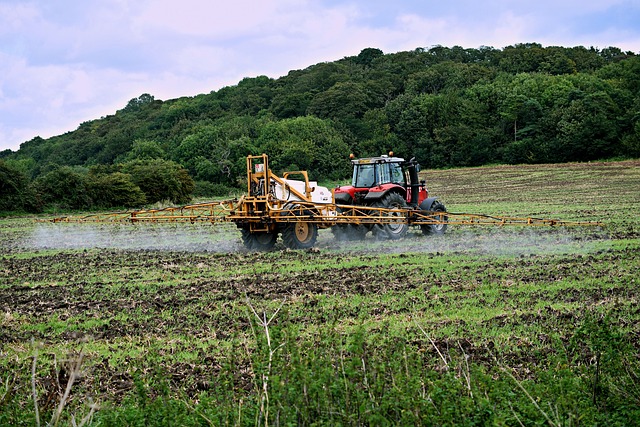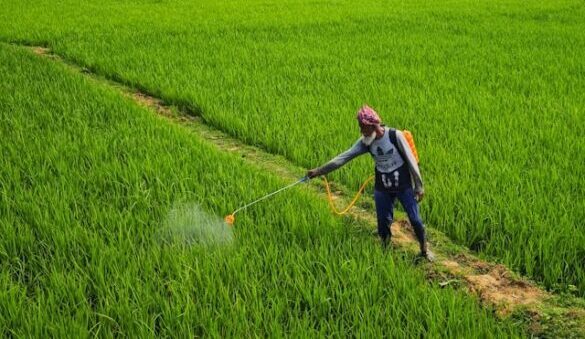
Fertilizers play a huge role in how our gardens grow, how crops thrive, and how the green spaces around us stay lush and healthy. Whether you’re a home gardener or a farmer, understanding fertilizers and their types is essential.
In Pakistan, where agriculture supports a large part of the economy and gardening is becoming more popular in homes, the use of fertilizers has become a common part of plant care. But what exactly are fertilizers? Why are they so important? And what types are available in Pakistan?
Let’s explore everything you need to know about fertilizers in Pakistan in a simple, easy-to-follow way.
Table of Contents
ToggleWhat Are Fertilizers?
Fertilizers are substances added to soil or plants to supply essential nutrients that help them grow. These nutrients are usually missing or present in low amounts in the natural soil.
The meaning of fertilizers in Urdu is “khad” (کھاد), a word commonly heard in every farming household in Pakistan. Whether it’s a tiny pot of mint in your kitchen or acres of wheat fields, fertilizers provide the boost plants need to grow strong and healthy.
If you’re confused by the variety of options, this Types of Fertilizers in Pakistan: A Complete Guide clears things up.
Why Are Fertilizers Necessary for Plants?
Just like humans, plants need a proper balance of nutrients to thrive. In their natural environment, plants draw these nutrients from the soil. However, over time and repeated growing cycles, the soil becomes depleted. That’s where fertilizers come in.
Here’s why fertilizers are necessary for plants:
- They replenish essential nutrients like nitrogen (N), phosphorus (P), and potassium (K).
- They help improve plant health and resistance to disease.
- They support root development, flowering, and fruiting.
- They increase overall yield in farming.
In some areas, especially in regions of Pakistan with sandy or worn-out soil, fertilizers are critical to getting any decent growth at all. This explains why some soils need fertilizers added to them—because they’re simply lacking in nutrients that plants require.
Types of Fertilizers in Pakistan
Fertilizers in Pakistan are generally divided into two categories: chemical (synthetic) and organic (natural).
Chemical Fertilizers
These are man-made and produced in factories using various minerals and synthetic compounds. They are fast-acting and commonly used in large-scale agriculture.
Popular types of chemical fertilizers in Pakistan include:
- Urea (rich in nitrogen)
- DAP (Diammonium Phosphate) (for phosphorus)
- NPK fertilizers (a mix of nitrogen, phosphorus, and potassium)
- Ammonium nitrate
- Potash
- Boron fertilizers (micronutrient-based)
- Acidic fertilizers (for crops that grow in slightly acidic soil)
Farmers use these because they give quick results and are widely available in different forms—granules, powders, or liquids.
However, chemical fertilizers also have downsides. Overuse can damage soil health, affect beneficial microorganisms, and contaminate groundwater. That’s why there is a growing shift toward organic fertilizers in Pakistan.
Organic Fertilizers
Organic fertilizers are made from natural sources—animal waste, plant matter, compost, and more. These are eco-friendly and improve the soil’s long-term health.
Some common organic fertilizers in Pakistan include:
- Compost
- Cow dung (gobar)
- Poultry manure
- Neem cake
- Bone meal
- Vermicompost
- Banana peels and kitchen waste
They release nutrients slowly, nourish the soil, and reduce the risk of harming plants. Organic fertilizers are especially loved by home gardeners growing vegetables, herbs, and flowers.


Thinking about going organic? Learn about the best natural options in Organic Fertilizers In Pakistan: 10 Natural Options For Better Growth.
Importance of Fertilizers in Pakistan
Fertilizers are essential in a country like Pakistan, where agriculture forms the backbone of the economy and food production. From wheat in Punjab to fruits in Balochistan, fertilizers are part of every farming journey.
Here’s why fertilizers are important:
- They increase food production to meet the growing population.
- They boost soil fertility and crop health.
- They support consistent growth in commercial farming.
- They make small gardens more productive and rewarding.
Without fertilizers, both small-scale gardeners and large-scale farmers would struggle to maintain plant health and yield.
What Are NPK Fertilizers?
You’ll often see the term NPK fertilizers in Pakistan, especially on garden store shelves. But what does it mean?
- N = Nitrogen (leafy growth)
- P = Phosphorus (root strength and flower/fruit development)
- K = Potassium (overall plant health and disease resistance)
NPK fertilizers are a balanced mix of these three essential nutrients and are used in everything from crops to kitchen gardens.
Natural vs. Chemical: Which One Should You Use?
Both types of fertilizers have their place. The choice between natural fertilizers (organic) and chemical fertilizers depends on:
- Your plant’s needs
- Soil condition
- Budget
- Environmental concerns
For quick results, chemical fertilizers work well. But for sustainable gardening, organic fertilizers are better. Many gardeners now prefer organic options for growing vegetables and flowers at home.
Fertilizer Use and Availability in Pakistan
Pakistan has a large fertilizer market. From government supply chains to local garden nurseries, fertilizers are available everywhere. Here are some things to keep in mind:
- Prices of fertilizers in Pakistan change with demand and import trends.
- Imports of fertilizers in Pakistan include raw materials and specialized products like micronutrient blends.
- Demand for fertilizers in Pakistan rises during planting seasons—Rabi and Kharif.
Even urban home gardeners are creating demand for fertilizers—especially organic ones—as the trend for self-grown vegetables and green balconies rises.
Planning to use fertilizers for vegetables? Don’t miss this A Complete Guide for Growing Winter Vegetables in Pakistan.
Understanding fertilizers is key to growing healthy plants, whether you’re managing a farm or taking care of houseplants. In Pakistan, both organic and chemical fertilizers are widely used and available. What matters most is knowing your soil and plants well, and then choosing the right type of fertilizer.
So next time you see your plant looking a little dull or your soil feeling dry and crumbly, think fertilizers. Give your plants the nutrition they need, and they’ll reward you with lush growth and vibrant blooms.
